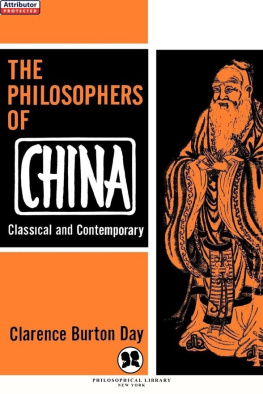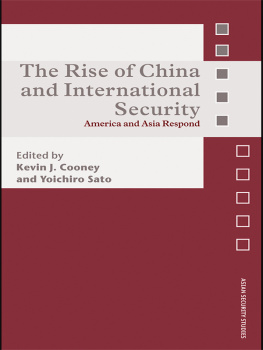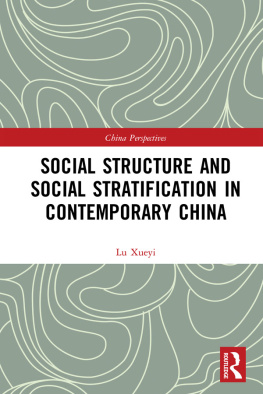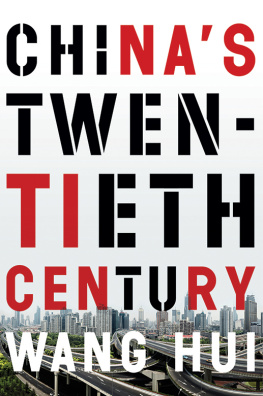Routledge Revivals
Living Issues in China
This book, first published in 1932, explores several different aspects of life in China at the beginning of the twentieth century including education, family life, economics and religion. This book will be of interest to students of Asian Studies.
Living Issues in China
Henry T. Hodgkin
First published in 1932
by George Allen & Unwin
This edition first published in 2015 by Routledge
2 Park Square, Milton Park, Abingdon, Oxon, OX14 4RN
and by Routledge
711 Third Avenue, New York, NY 10017
Routledge is an imprint of the Taylor & Francis Group, an informa business
1932 Henry T. Hodgkin
All rights reserved. No part of this book may be reprinted or reproduced or utilised in any form or by any electronic, mechanical, or other means, now known or hereafter invented, including photocopying and recording, or in any information storage or retrieval system, without permission in writing from the publishers.
Publishers Note
The publisher has gone to great lengths to ensure the quality of this reprint but points out that some imperfections in the original copies may be apparent.
Disclaimer
The publisher has made every effort to trace copyright holders and welcomes correspondence from those they have been unable to contact.
A Library of Congress record exists under LC control number: 32017063
ISBN 13: 978-1-138-91769-9 (hbk)
ISBN 13: 978-1-315-68888-6 (ebk)
LIVING ISSUES IN CHINA
By
HENRY T. HODGKIN
HENRY T. HODGKIN was born and educated in England. After taking his Master of Arts degree at Kings College, Cambridge, he took his medical degree at St. Thomass Hospital, London, and in 1905 went to Chengtu, West China, as a medical missionary. In 1910 he returned to England to become secretary of the Friends Foreign Mission Association, a post which he held for ten years. In this period he visited India, Syria, Ceylon, Madagascar and America, speaking on international and religious subjects. On the outbreak of the World War in 1914 he was one of the group responsible for the organization of the Fellowship of Reconciliation in England and America, and held the chairmanship of that body in England for five years. In 1920 he returned to China, spending most of the next two years traveling extensively and lecturing to students and other groups. When the National Christian Council of China was formed in 1922 he was invited to become one of its secretaries, and for seven years traveled throughout China in the interests of the cooperative enterprises of the many churches and missions comprising the Council. Opportunity was thus available to him to observe every phase of the changing life of the Chinese people in the period when the Nationalist government was being established. At the conclusion of this period Dr. Hodgkin responded to the call of the Society of Friends in America to become director of a graduate center for religious and social study, Pendle Hill, which was opened at Wallingford, Pennsylvania, in the autumn of 1930.
Dr. Hodgkin is the author of a number of books, among them The Way of the Good Physician, The Missionary Spirit, The Christian Revolution, The Way of Jesus, China in the Family of Nations, and is the editor of Seeing Ourselves through Russia.
COPYRIGHT 1932 BY G. Q. LE SOURD
Printed in the United States of America
ACKNOWLEDGMENT
Grateful acknowledgment is made of much help received in the preparation of this volume from friends who, often at short notice and in busy lives, have given of their time and thought to criticism and suggestion. I mention especially Professors William Hung, T. T. Lew, and P. C. Hsu, of Yenching University, Dr. C. Y. Cheng of Shanghai, Messrs. E. C. Lobenstine, Frank Rawlinson, Ronald Rees and E. E. Barnett also of Shanghai, all of whom have read part or all of the manuscript and given valuable advice. They are of course in no way responsible for the use I have made of their help or for the final result. To the Educational Committee and editorial staff of the Missionary Education Movement I am indebted for unfailing sympathetic counsel at each stage of the work. To Miss Anna R. Sayler for typing the original manuscript, to my wife, Joy Hodgkin, for proofreading, and to Miss Mary Mott for work on the index I also wish to express gratitude.
Written under some pressure, with many other claims on my time, I am well aware of imperfections in this volume, and I can only say that these must have been more serious had it not been for aid received.
H. T. H.
CONTENTS
LIVING ISSUES IN CHINA
MY FIRST few weeks in China (in the spring of 1905) were spent as the guest of Dr. D. Willard Lyon on the North Szechwan Road, Shanghai. Never can I forget the feeling I had of having come into a land of perpetual noise. All day long wheelbarrows squeaked past the door, carrying building materials for the multitude of new houses rising all around. As night fell the sound of hammering, shouting, singing, swearing, gave place to the perpetual croaking of frogs in swampy fields long since converted into terraces and alleys. Thereafter, as I traveled fifteen hundred miles inland, the chanting of the trackers on the river boats, the noisy meals, the fierce quarrels on occasion, the loud bartering at booths and stalls, all confirmed the impression. The noises of China are many and varied and bewildering.
Today the sounds seem to cross the Pacific Ocean, the sounds of China struggling with new forces, and with old spectres such as famine and lawlessness; China crying out to the world to stand by her when aggression threatens; China speaking in the new language she is just beginning to learn. It may be that the voices we hear are superficial and that the deeper cries never reach our ears. As a newcomer in China, how could I have heard the little girls in countless homes crying out with agony as their tender feet were crushed? Still less could I catch the yearning, of which they themselves were scarcely conscious, for a life of freedom and expansion. How could I hear the dull cry of hundreds of thousands sinking under sheer poverty aggravated by the opium habit, by piled up debt, by recurrent famine? Still less might a newcomer be aware of the soul hunger and mental poverty by which the great masses were crippled and stunted. So it is in America today; the deeper voices from China are drowned by a few insistent notes. If we might for a while listen to the deeper voices we should be less impatient of the discordant cries which fill our ears; we should be on the way towards understanding and helping those who are crying to us.
But why should we spend time studying China when there are a hundred problems at home which call for intense thought and energetic action? Such may well be the question in the minds of many who are asked to read this volume or to join a study group. It will not be time lost to deal with such a state of mind.
To anyone who, like the author, has spent years in China, the question may seem indeed to be superfluous. Such a person has come under the spell of the East. He has known the inspiration of meeting representatives of one of the great ancient civilizations. He has stood in temples which owe their inspiration to Laotze or Confucius or Buddha, and which maintain traditions and practices that have been woven into the life of the whole race. He has talked with men and women who were trained along lines almost precisely similar to those along which their forefathers centuries before Christ were trained. He has observed living under the same roof or in the same street young men and young women who are brimming over with enthusiasm for modern science, who have been students in Paris or New York or Oxford, whose eyes are turned to the future with a hopeful idealism in strange contrast with the attitude of a father or a grandfather who cannot think save in terms of classics compiled four or five hundred years before the beginning of the Christian era. To have lived and worked thus in a country which one had been taught to regard as the home of dyed-in-the-wool conservatism is enough to keep one thinking furiously, and to make the future of the Chinese people at once the most interesting and perplexing of world problems. To have resided during recent years in China, or even to have paid a flying visit to her great cities, means that one can scarcely keep his eyes turned long in any other direction. It is the land where anything may happen.







